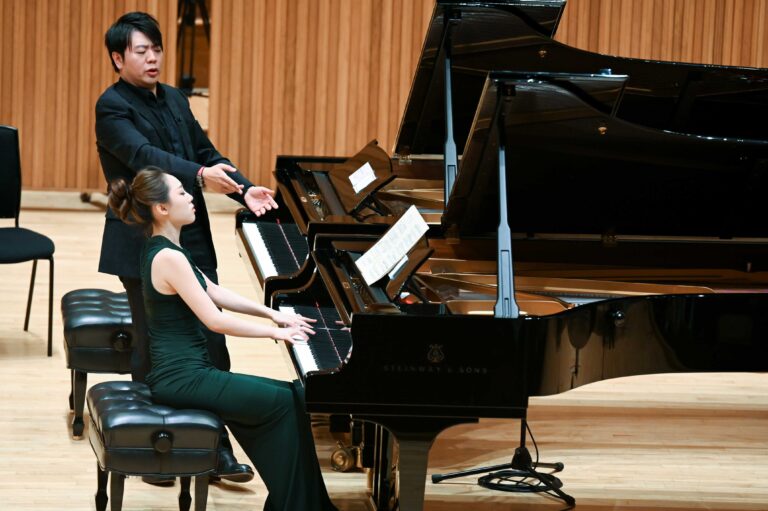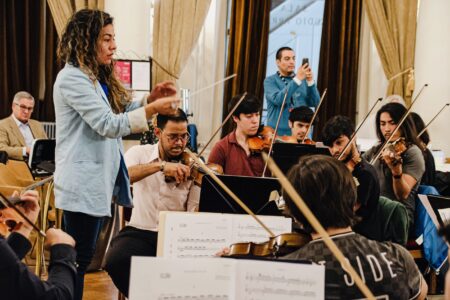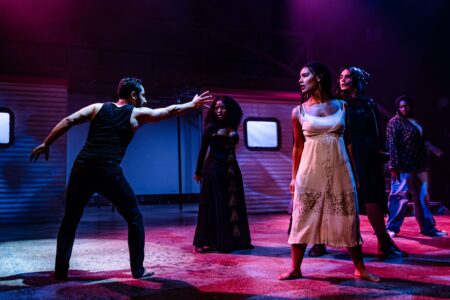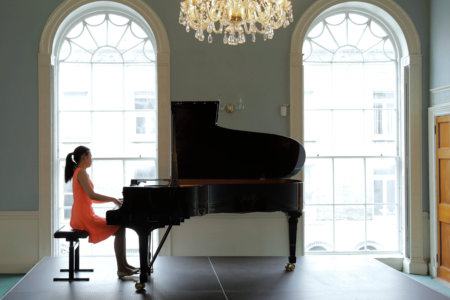
A music degree today is so much more than a four-year endeavour solely focused on playing an instrument at the highest level. Many universities now recognise the growing importance of soft skills and the role they play in ensuring a graduate is career-ready. The best music schools do the same — fusing the three critical C’s into their curricula: critical thinking, creativity, and communication.
Most of this is done by mirroring professional practice. Think seminars, workshops, rehearsals, and opportunities that let students work in teams and be in charge of projects from start to finish. Done properly, these promote independent thinking, the ability to express complex ideas both in writing and in speaking, intellectual curiosity, and understanding of the social, cultural, and institutional structures of the music profession. For a music education that ensures these outcomes — and more — join one of the universities below:
Royal College of Music London
The Royal College of Music (RCM), London, is ranked the Global No. 1 institution for Performing Arts for the third year running and earned the inaugural top spot for Music in the 2024 QS World University Rankings by Subject.
This achievement – and a long list of illustrious graduates – speaks volumes about the RCM’s quality and output of research activity, employability, international profile, sustainability, and strength and quality of teaching.
The RCM’s dedicated and experienced professors are leaders in their fields; many are principal players with London’s major orchestras and ensembles. Their important contribution has been formally recognised with the College’s Gold ranking in the Teaching Excellence Framework in 2024. What further sets the RCM apart is that it’s a world-leading conservatoire in the perfect London location. It’s opposite the Royal Albert Hall and close to museums such as the Science Museum, Natural History Museum and V&A – all of which are homes to breathtaking historic collections, dynamic exhibits and impressive learning programmes.
As a student at the Royal College of Music, you have the opportunity to live in a fully equipped, dedicated and specially designed hall of residence. In its acoustically treated bedrooms, you can practise 24/7 with no shortage of inspiration at your doorstep, or use one of the many new, innovative performance, practice and social spaces, Digital Innovation Lab (with Performance Laboratory) and interactive Royal College of Music Museum. The opportunities available to you at the College are endless.
If you join the Bachelor of Music course, you may even get a chance to perform at the likes of London’s Royal Festival Hall or at the BBC Proms, possibly under the baton of a conductor such as Sakari Oramo or in a piano masterclass with Lang Lang.
As a graduate, you’ll have extraordinary connections with the industry. Orchestral musicians have sit-in schemes with major London orchestras, including the BBC Symphony Orchestra, London Symphony Orchestra, Royal Philharmonic Orchestra and Philharmonia Orchestra.
At the only UK conservatoire with a dedicated Creative Careers Centre, you’ll receive even more support – such as one-to-one career sessions, lectures, seminars and resources and extensive professional opportunities in and around London – and for up to five years after graduation.
If you want to progress your music studies, you can join a range of Taught Postgraduate programmes, such as the main Masters programme, to earn one of three qualifications – Master of Performance, Master of Composition or Master of Music in Performance – or the MMusEd Teaching Musician and MSc in Performance Science.
A range of Artist Diplomas – the highest level of taught postgraduate study designed for those who would like to work intensively on further artistic development beyond Masters level – are also available.
Apply to the Royal College of Music, London now.

Royal Northern College of Music is home to world-famous bands such as Buzzcocks, Joy Division, Oasis, The Smiths and The Stone Roses. Source: Royal Northern College of Music
Royal Northern College of Music
Where better to kick-start your music career than Manchester; a UK city renowned for harbouring musical talent and innovation. Home to three professional orchestras – the Hallé, the BBC Philharmonic and the Manchester Camerata – as well as world-famous bands such as Buzzcocks, Joy Division, Oasis, The Smiths and The Stone Roses, this is an inspiring starting block for the aspiring musician.
Understanding the significance and fast-evolving nature of popular music, the Royal Northern College of Music (RNCM) ensures its syllabus reflects the diversity of this contemporary art, allowing students to study a myriad of beautiful musical styles. The college offers a Bachelor of Music and a Graduate Diploma, as well as a wealth of postgraduate degrees and further study options.
RNCM Popular Music Vocals student, Samantha Kok, found the school’s International Office extremely helpful. When questioned about her plans after the MMus course, she felt as though her options were open. “I don’t have a cemented plan for my future but I’m quite flexible and want to see where life will take me. To get to where it will take me I need a good foundation. And I think that is what RNCM offers me, a good foundation, a good network and a great time.”
Kok has a long way to go to join the ranks of notable RNCM alumni like cellist HAUSER, Deep Purple keyboardist Don Airey, soprano Ali McGregor, pianist Stephen Hough, soprano Carly Paoli and many more. Some alumni have gone on to become teachers and educators, researchers, broadcasters, animators, arts managers, and community outreach leaders, proving that music can bring you to various sectors outside of the industry.

Royal Conservatoire of Scotland offers the UK’s only Bachelor of Music degree dedicated to traditional and folk music. Source: Royal Conservatoire of Scotland
Royal Conservatoire of Scotland
Located in Glasgow, a multi-cultural city that blends the traditional with the cutting edge, and set against picturesque landscapes, the Royal Conservatoire of Scotland (RCS) is a place like nowhere else, powered by performance, its people, and their passion. Collaboration sits at the heart of all programmes at RCS, opening the door for students to not only develop their art but their power to use it in an ever-changing world. RCS is internationally renowned, having consistently been ranked within the world’s top ten performing arts institutions over the last decade. Most recently, RCS was ranked sixth in the QS World Rankings 2024 for performing arts.
Being a student at RCS is to be immersed in a dynamic arts community with artists from more than 60 countries. Students work and learn alongside award-winning teaching staff and internationally acclaimed guest artists, where they develop their craft and collaborate across art forms in one of the finest multi-disciplinary education environments in the world.
There’s the opportunity to work across disciplines, from soundtracking filmmaking projects and working with composers to performing in the orchestra for ballet and musical theatre productions.
Music students receive weekly one-to-one lessons on their principal study. From day one students are treated as professionals-in-training and are given non-competitive access to national orchestras and side-by-side opportunities with partners including the Royal Scottish National Orchestra, BBC Scottish Symphony Orchestra, Scottish Ensemble, Scottish Chamber Orchestra, Scottish Opera and The National Piping Centre. Students also work alongside RCS visiting artists, who are a central part of the institution’s creative community. Students can also perform at iconic festivals, such as the Edinburgh International Festival and Celtic Connections – the annual celebration of folk, roots and world music. RCS offers the UK’s only Bachelor of Music degree dedicated to traditional and folk music.
Graduates of RCS make their mark all over the globe – on cinema and TV screens, in concert halls and classrooms, and everywhere in between. Music alumni includes film, television and theatre composer Patrick Doyle; composer C. Duncan and jazz pianist Fergus McCreadie, both Mercury Prize nominees; conductor Ryan Bancroft and folk singer Iona Fyfe.
*Some of the institutions featured in this article are commercial partners of Study International










